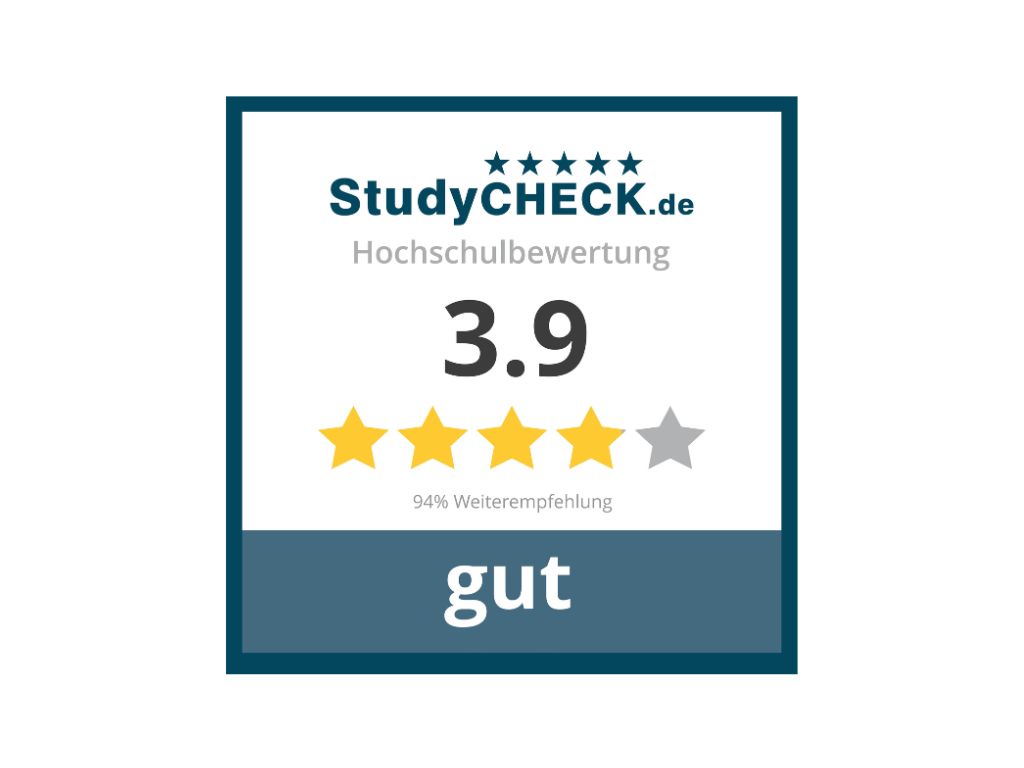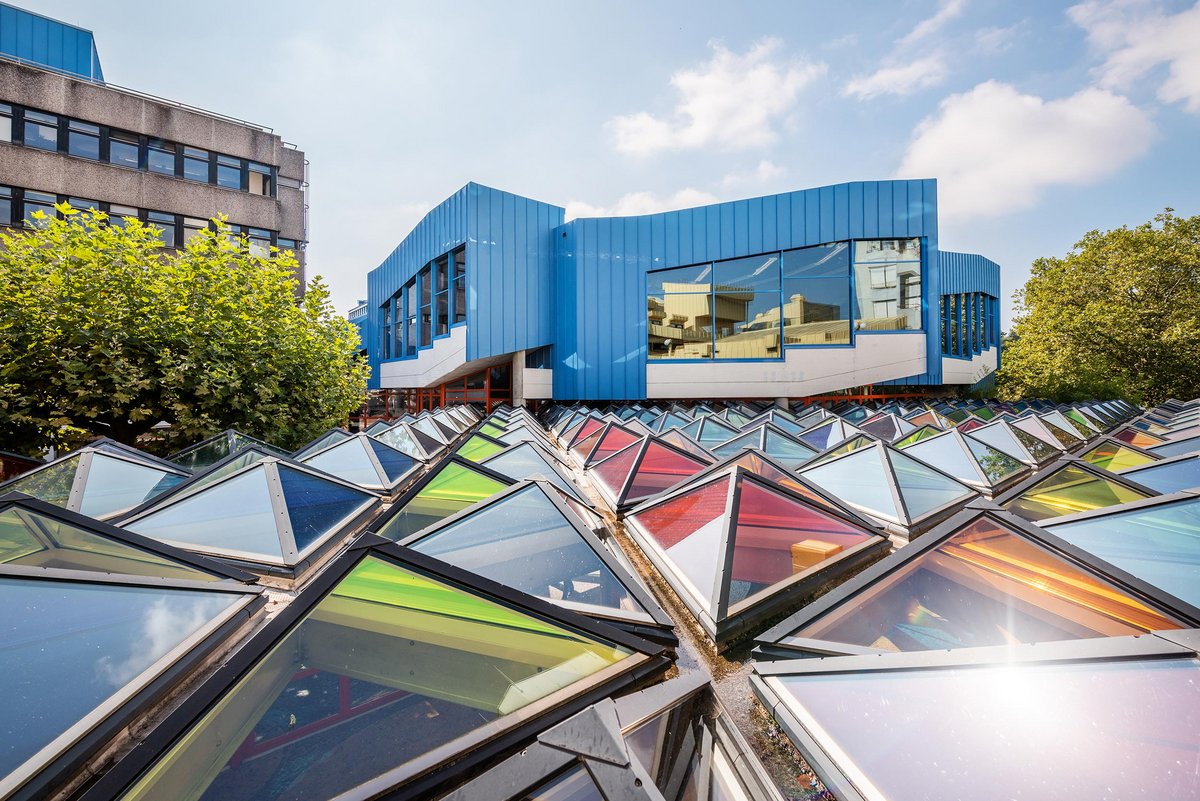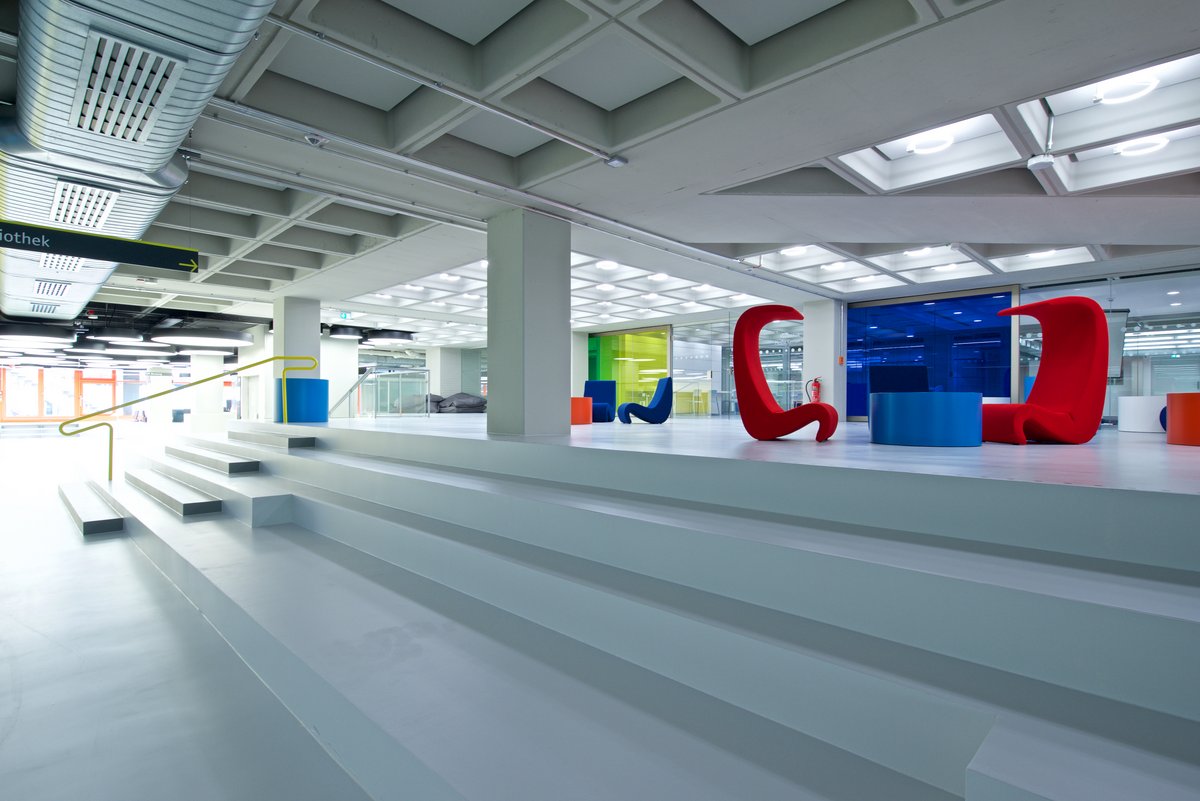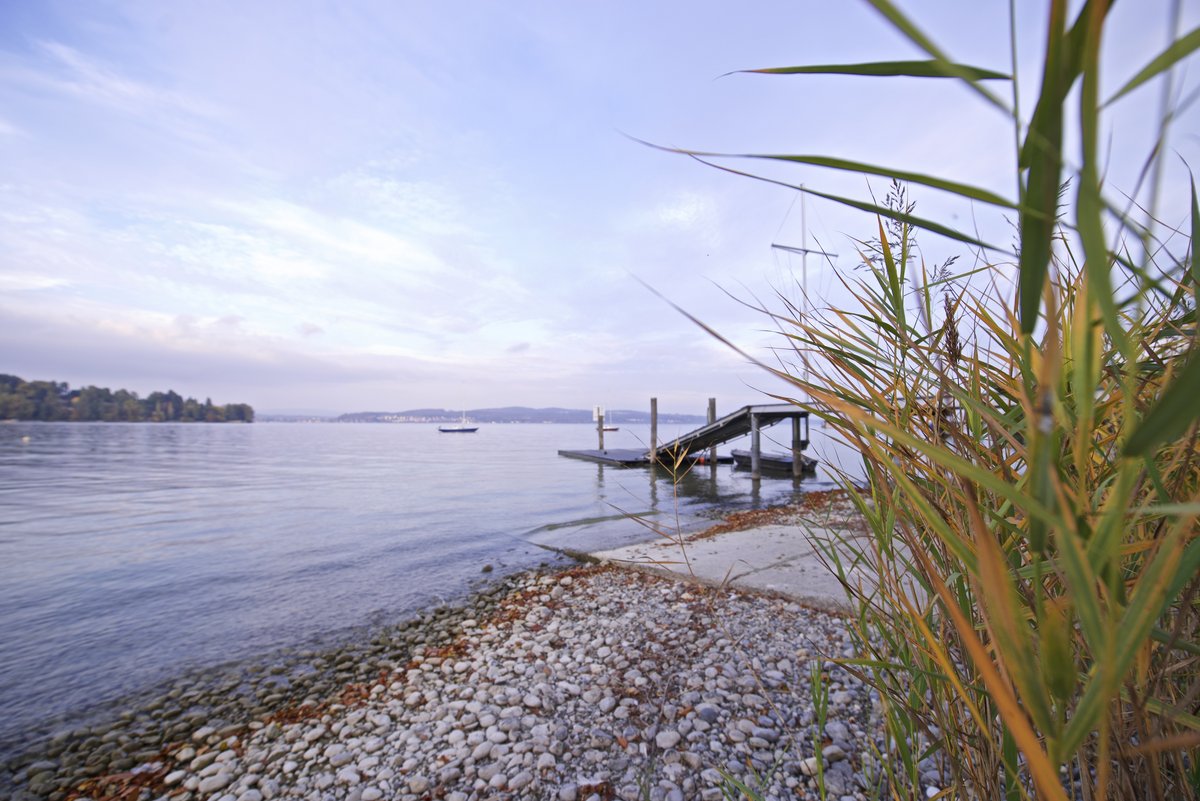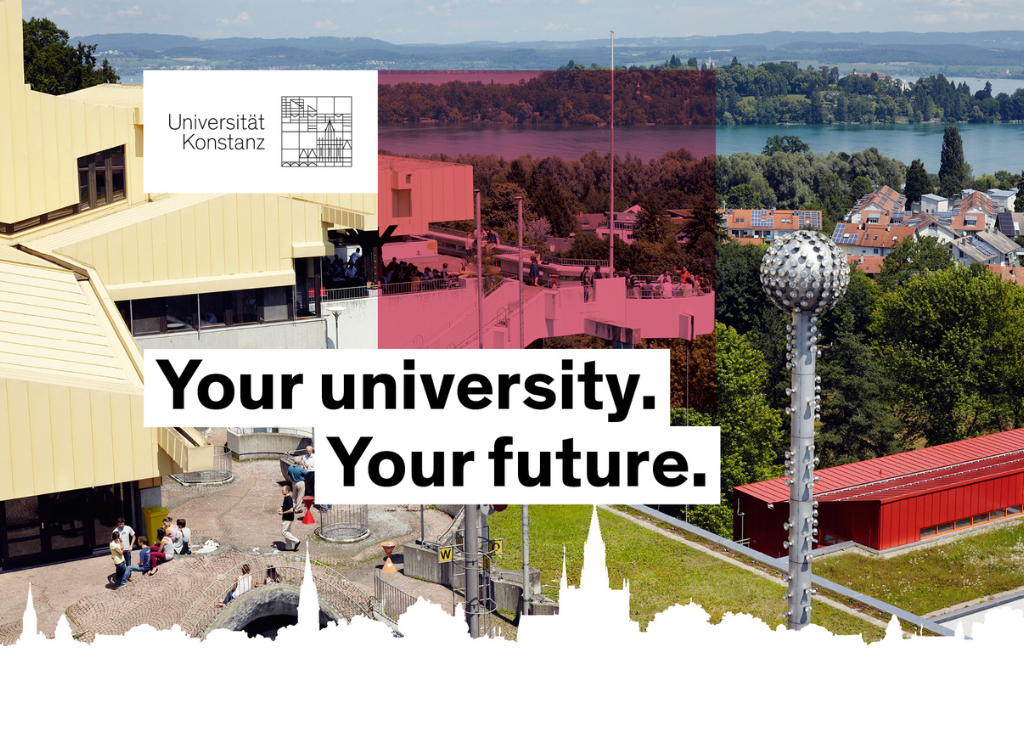
History – Bachelor of Education (Teaching degree)
In History at the University of Konstanz you will study the spectrum from antiquity to the Middle Ages and through to modern and contemporary history, but you will be able to set your own areas of emphasis in the early stages. The study programme links epochs with region-specific (e.g. Ancient Near East, Eastern Europe) and thematic (e.g. economic and social history) areas of emphasis. Here, accents may include, for instance, world history, economic history, Eastern European history, the history of science or media history. Historians draw attention to the similarities and differences between present-day and past ways of living and horizons in thought. They work mainly with research literature and historical source materials which form the foundations of their subject. In addition to subject-related content you will have classes in didactics and education.
Why study History in Konstanz?
The study of history at the University of Konstanz has a firm emphasis on research and theory as well as a very strong international orientation. In Konstanz, the subjects of sociology and history are combined to form a joint department. This means that our students have a large range of options when choosing their preferred courses and shaping their individual study programme. You will be learning in small groups and be introduced to practical research at an early stage in your studies. At the beginning of your studies, the seminars will be accompanied by tutorials to help you master the art of scientific working techniques and where students from advanced semesters provide the support and advice you may need. Students can spend a semester abroad which will open up new perspectives – personally as well as professionally. The University of Konstanz Writing Centre offers research and writing seminars to strengthen your academic writing during the whole extent of your studies. There are also numerous opportunities for you to learn a new language or to improve your existing skills, above all at the university’s Language Institute (SLI).
Study content
Prospects
Career prospects
Studying teacher education at the University of Konstanz will qualify you first and foremost for a teaching post in the state of Baden-Württemberg. When choosing the subjects you wish to study, you should note that your employment chances will partly depend on your combination of subjects. Normally, you will complete your bachelor’s degree after sechs semesters and continue with your master's programme (four semesters). You will then complete 18 months as a trainee teacher (Referendariat) at a school in Baden-Württemberg. After successfully completing your 'Referendariat', you will be fully qualified to teach at a German Gymnasium (secondary school). Your professional post will preferably be at a school in the state of Baden-Württemberg. In principle, there is also the possibility of applying for a position in other federal states (among other things, this depends on the subject combination required by each specific state).
You can find out more about career entry in the interview series #dreamjob - Starting a career. Alumni of the University of Konstanz report on their very personal career entry.
Graduate studies
The University of Konstanz offers the Master of Education History for future school teachers.
Study structure
Start of study
Winter semester
Study structure
Students always have to study two major subjects. You may freely combine your choice of subjects from those offered at the University of Konstanz. But you should note that some subject combinations demand a higher level of organisation and work. This is why we recommend you to seek more information and personal advice before entering your application. The bachelor programme generally lasts for six semesters and is concluded with a bachelor thesis. You will need to make a new application for the master’s programme, which generally lasts for four semesters. A combination of three subjects is not available in the bachelor programme. It might, however, be possible to study a third subject for future teaching purposes during the master’s programme.
The study programme for future teachers consists of the following elements:
- Academic studies: studies in both of the future teaching subjects
- Teaching methodology: acquisition of subject-specific theories and methods for teaching the subject matter
- Educational science: acquisition of educational and other qualifications relevant to a teaching position
- Practical experience: three-week orientation internship during the bachelor's programme and a practical teaching semester (12 weeks) during the master's programme.
You can find an exemplary structure of the study programme in this table.
These documents will support you in planning your studies:
Opportunities for additional training
At the University of Konstanz, you have a broad range of opportunities and training options that complement your study programme, for example orientation programmes to support new students, learning guidance, language courses, a data and information literacy programme as well as options promoting career-oriented skills and social commitment.
Skills for successful studies- GoMINt – orientation programme in STEM subjects
- Writing Centre – writing tutoring, joint writing sessions and workshops
- Language courses at the Language Institute
- Learning guidance, study tips, time management – workshops offered by the Central Student Advisory Service (ZSB)
- Advanced Data and Information Literacy Track (ADILT) – programme can be completed with a certificate
- Transfer – practical projects (research, business, politics and society)
- qualification N – Sustainability Certificate at the University of Konstanz
- Profil+ – programme for career skills (German skills required)
- Career Passport – programme for career skills (for international students)
- Advice on career entry, opportunities and workshops from Career Service
Internships and stays abroad
Internship
During your bachelor's programme you will complete a three-week orientation internship and during your master's programme a 12-week practical teaching semester.
Stay abroad
We highly recommend a study abroad stay. You can spend semesters abroad at numerous European and non-European universities. The university promotes study abroad via Erasmus+ and numerous other exchange programmes.
Impressions from students and lecturers
Hear from students and lecturers
In our interview series, students talk about their subject, teachers explain the department's research and tell you what topics they cover in seminars and lectures.
Get an impression
Discover online lectures and websites with more information about your prospective subject.
Study requirements
Admission requirements for studying
General higher education entrance qualification (Abitur) or equivalent.
Obligatory online orientation test
Before starting a teacher education programme, you need to take an online orientation test. The test will help you to decide whether teaching and working daily with children and adolescents is suitable for you. Please send in your certificate of participation together with your application papers.
Further information can be found in the admission regulations.
Fees
Semester fee
All students enrolled at the University of Konstanz are charged a semester fee each semester, similar to all other German universities. Here you can find the current semester fee and its individual components.
Tuition fees for first degree studies for certain international students
Since winter semester 2017/18, the state of Baden-Württemberg has required some international students to pay tuition fees for their first degree studies. The following students are not required to pay tuition fees: citizens of a country within the European Union (EU) or the European Economic Area (EEA), doctoral students and certain “Bildungsinländer” (e.g. non-EU citizens with a German “Abitur”). More detailed information can be found here.
Each year, the University of Konstanz grants exemptions to a limited number of particularly gifted international degree-seeking students in accordance with the university’s “Begabtenbefreiungssatzung” (statutes governing the exemption of gifted students). More detailed information can be found here.
Tuition fees for second degree studies for all students
All students are required to pay tuition fees for their second degree studies. More detailed information can be found here.
Required language skills
Foreign language skills
Skills in English, another foreign language and qualification in Latin (Latinum). You can document these by e. g. your higher education entrance qualification certificate (‘Abiturzeugnis’ or equivalent). Alternatively you can catch up on missing language skills at our Language Institute (SLI) during the first semester.
German language skills
International applicants need documentation of their German language skills, level DSH-2 or TestDaF 4. Alternatively, other language tests or school certificates recognized as equivalent can be used as proof of the required German language skills. The University of Konstanz does not offer preparatory German language courses or approved German language exams. For this reason, you must submit accredited proof of your German language skills along with your application.
Teaching and examination language
The language of instruction and examinations is German.
Interests and skills
As a teacher you need a variety of skills and competences. You should of course be fascinated by the contents of your subject, and at the same time enjoy sharing your knowledge with your young students. You will need to be able to develop teaching concepts, sometimes with your teacher colleagues, and you will need to demonstrate a high level of educational skills in your daily work with children and adolescents. In addition to this, you will need a variety of social competencies. These include communication skills, conflict ability, resilience and the ability to inspire and motivate. These skills will also help you when interacting with parents.
When studying history it is useful to have a good deal of curiosity for cultures that are distant in time, and often geographically, and to enjoy critically inquiring into historical sources. Since these sources form the foundations of the study programme, you will be doing a lot of reading (historical sources and the relevant research literature). Diverse language skills, and especially the ability to read sources and research literature in different languages, are important for successful studies. At the same time, in view of the numerous options, you should be able to work independently and in a well-organised way.
In brief:
- Enthusiasm for the subject and for teaching children and adolescents
- Communication skills
- Resilience
- Very good verbal skills
- Solid foreign language skills (Latin, English and another foreign language)
- A willingness to read extensively
- A structured and independent approach to work
- An interest in history, culture and historical contexts
Application
Application and application documents
Application documents
During the online application process, you will need to enter various kinds of information (school grades, attendance periods etc.) and upload various PDF documents. Please make sure that you have the relevant documentation ready. This may include:
- your Abitur certificate (German general higher education entrance qualification)
- documentation of any volunteering you may have done (FSJ, FÖJ etc.)
- any documentation about vocational training you may have completed
- any other required documents (medical certificate etc.)
An electronic assistant will guide you through the application process. Required fields are marked by an asterisk (*).
An application is possible during the following period: 07.05. - 15.09.
There may be other deadlines if you are applying for admission to a higher semester (for instance, if you are changing subjects or universities). For more information please consult the
university website
.
Contact
Contact person
The Central Student Advisory Service (ZSB) can help you with general questions about finding the right study programme as well as when you are concerned or unsure about your studies. We will be happy to advise you and support you with a wide range of services.
Central Student Advisory Service (ZSB)
Room: D 409 – 412a
Make an appointment: termin.zsb@uni-konstanz.de
Questions related to the content or organization of the study programme:
Departmental student advisory service
Dr. Agata Nörenberg, Tina Raddatz
Contact persons room E 318
Phone: +49 7531 88-3586
Email: studienberatung.geschichte@uni-konstanz.de
Advisory Service for Teaching Degrees (BiSE)
Frank Maurer
Contact person room: GF 203
Phone: +49 7531 88-5609
Email: bise.studienberatung@uni-konstanz.de
Studying at the University of Excellence Konstanz
With your university entrance qualification in your pocket, the sky is the limit. Get a top education at the University of Konstanz, benefit from outstanding teaching and interdisciplinary exchange on our international campus. Situated on a hilltop overlooking Konstanz with a great view of Lake Constance and the Alps, our nationally and internationally renowned research university has been recognized as a University of Excellence since 2007.
Top ratings in the CHE University Ranking regularly confirm the quality of our study programmes. Take your pick from more than 100 programmes! Our courses are close to research and will perfectly equip you for the future, especially in combination with practice-oriented, socially relevant transfer projects, opportunities for going abroad and qualification programmes that you can complete alongside your studies.
Download study information
